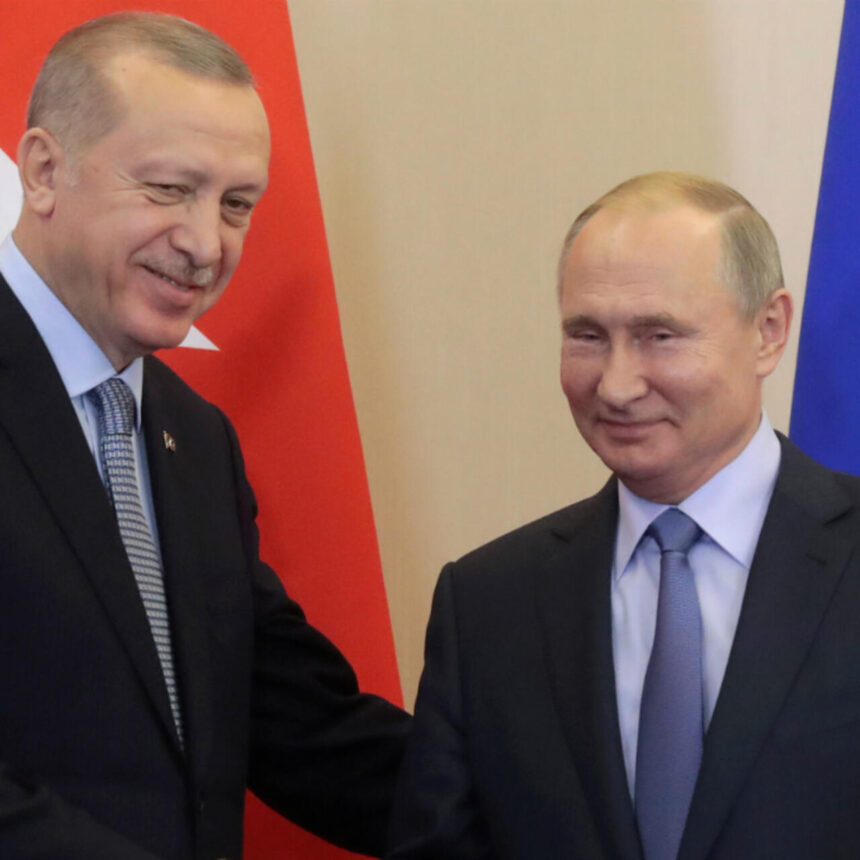Summary by Geopolist | Istanbul Center for Geopolitics:
Russia’s strategic positioning in Syria and Africa is facing significant challenges as the fall of the Assad regime casts uncertainty over the future of its military bases in Syria. These bases are critical to Russia’s ability to project power into the Mediterranean and support its logistics in Africa. Although Russia has managed to secure the bases in the short term, their long-term stability is doubtful. The Kremlin has shifted its rhetoric, referring to Syrian rebels as “opposition” rather than “terrorists,” as it negotiates with transitional authorities. However, Russian officials, including Kremlin spokesperson Dmitry Peskov, have expressed concerns about the durability of any agreements with the new Syrian government.
The potential loss of Russia’s Syrian bases would disrupt its logistics network and diminish its ability to project power into the Mediterranean. Tartus, its only formal overseas naval base, plays a key role in countering NATO operations and supporting Russia’s Africa Corps. As a contingency, Russia is increasingly looking to Libya as an alternative hub for its military logistics. It has upgraded several bases in Libya and expanded storage capacities to accommodate cargo operations. However, its reliance on Libyan warlord Khalifa Haftar makes this position precarious, as the lack of a formal agreement and ongoing civil war in Libya leave Russia vulnerable to political shifts.
In addition to Libya, Russia has expanded its presence in Sudan, pursuing a long-term naval base at Port Sudan. This base would provide strategic access to the Red Sea and the Indian Ocean, allowing Russia to project power and resupply its operations in Africa. However, Sudan’s ongoing civil war and international pressure against a Russian base complicate these plans. The Kremlin has faced similar challenges in Libya, where the United States and other players have actively discouraged Haftar from formalizing a naval base agreement with Russia.
Russia’s inability to reinforce the Assad regime has damaged its global reputation as a reliable partner. This could weaken its influence among African autocrats, who have relied on Russian support to maintain their regimes. Syria’s fall has also emboldened Salafi-jihadi groups in the Sahel, who could capitalize on Russia’s reduced credibility to intensify pressure on local governments aligned with Moscow.
Meanwhile, in the Horn of Africa, Ethiopia and Somalia recently reached a Turkish-mediated agreement granting Ethiopia access to the Red Sea. This marks a significant development in the political dispute between Ethiopia and the Somali Federal Government (SFG). The agreement is expected to lead Ethiopia to withdraw from its controversial naval port deal with Somaliland, easing tensions between the two nations. The improved relations may also help resolve ongoing disputes between the SFG and Jubbaland, a semi-autonomous Somali state.
The Ethiopia-Somalia rapprochement could reduce the likelihood of direct or proxy conflicts, particularly over Ethiopian troops deployed in Somalia. The SFG’s earlier demand for the withdrawal of Ethiopian forces may be reversed, and Ethiopia could remain a key player in Somalia’s new African Union mission. However, recent clashes between Jubbaland and SFG forces highlight the fragility of these agreements, with both sides engaging in limited skirmishes over territorial control.
These developments underscore the shifting dynamics in the Mediterranean and the Horn of Africa. Russia’s strategic recalibrations reflect its efforts to maintain influence in the face of political and logistical challenges, while Turkey’s mediation highlights its growing role in fostering stability in the Horn of Africa. The situation remains fluid, with potential for further realignment as regional actors navigate these evolving geopolitical landscapes.
Read more here.







